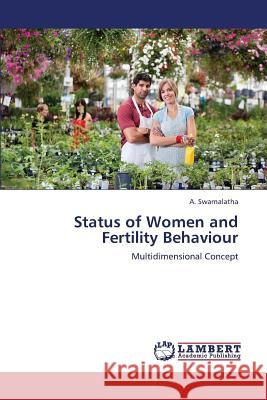Status of Women and Fertility Behaviour » książka
Status of Women and Fertility Behaviour
ISBN-13: 9783659226649 / Angielski / Miękka / 2013 / 204 str.
The status of women is a multidimensional concept referring to women's access to and control over valued material and social resources and/or to women's power and autonomy, i.e., women's ability to control important events in their lives or their freedom control by others, especially others in family or household. All the world over, the status of women in general is undergoing a change, on the basis of several determinants, and India is no exception. The privileges and roles of Indian women have been undergoing a change according to their social characteristics. It may be said in general that the privileges that women enjoy also determine their standard of living and their way of life. In the light of this, an effort is made in the present undertaking to study specifically a few dimensions of the status of women in Rayalaseema region. They include socio-economic dimensions consisting of education, occupation and income, cultural determinants like religion, caste, value of son, age at marriage and payment of dowry, autonomy in decision-making, emancipation of women and their opinions and the roles of women and their influence on fertility behaviour.
The status of women is a multidimensional concept referring to womens access to and control over valued material and social resources and/or to womens power and autonomy, i.e., womens ability to control important events in their lives or their freedom control by others, especially others in family or household. All the world over, the status of women in general is undergoing a change, on the basis of several determinants, and India is no exception. The privileges and roles of Indian women have been undergoing a change according to their social characteristics. It may be said in general that the privileges that women enjoy also determine their standard of living and their way of life. In the light of this, an effort is made in the present undertaking to study specifically a few dimensions of the status of women in Rayalaseema region. They include socio-economic dimensions consisting of education, occupation and income, cultural determinants like religion, caste, value of son, age at marriage and payment of dowry, autonomy in decision-making, emancipation of women and their opinions and the roles of women and their influence on fertility behaviour.











